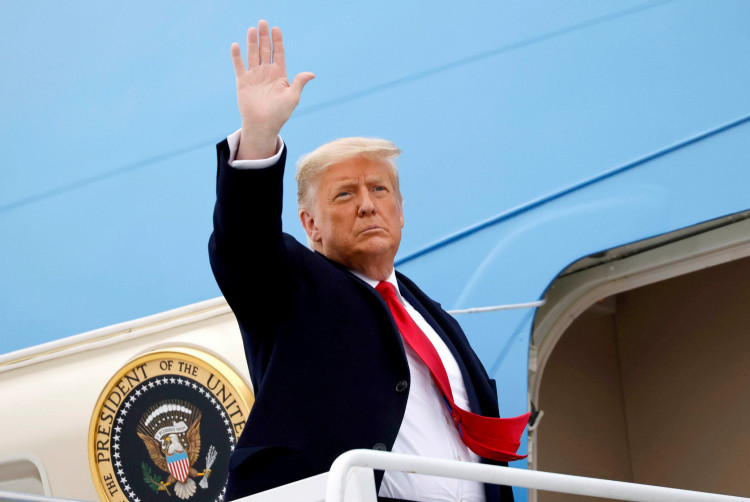President Donald Trump's plan to send National Guard troops to Oregon was halted Sunday night after a federal judge temporarily blocked the deployment, marking a rare judicial curb on presidential authority over military mobilization.
U.S. District Judge Karin J. Immergut, a Trump appointee, issued the ruling in response to lawsuits filed by Oregon, California, and the city of Portland. The temporary restraining order prevents the president from deploying troops from any state or the District of Columbia to Portland, where small-scale protests near an Immigration and Customs Enforcement (ICE) facility have been ongoing since early summer.
"The rule of law has prevailed," California Gov. Gavin Newsom said Sunday night. "This ruling is more than a legal victory, it's a victory for American democracy itself. Donald Trump tried to turn our soldiers into instruments of his political will." Oregon Gov. Tina Kotek, who joined the lawsuit, called the president's deployment "an abuse of power and a disservice to our communities and our service members," according to Portland station KOIN.
Immergut's order came a day after she initially blocked Trump from sending 200 Oregon National Guard troops to Portland. In response, the president attempted to redirect California's Guard units to Oregon, prompting swift legal and political backlash from both states.
Kotek said 101 members of California's National Guard had already arrived by plane Saturday night, with more reportedly on the way. "There is no need for military intervention in Oregon," she said Sunday. The Pentagon later confirmed that 200 Guard members had been dispatched from California before Immergut's restraining order took effect.
Trump lashed out after the ruling, criticizing Immergut despite appointing her himself. "I wasn't served well by the people that picked judges," he said, adding that the judge "ought to be ashamed of herself" because "Portland is burning to the ground."
The administration has portrayed the Portland demonstrations as violent threats to federal property. "A district court judge has no conceivable authority, whatsoever, to restrict the President and Commander-in-Chief from dispatching members of the U.S. military to defend federal lives and property," White House Deputy Chief of Staff Stephen Miller wrote on X early Monday, calling the ruling "one of the most egregious and thunderous violations of constitutional order we have ever seen."
Oregon officials have disputed the administration's characterization of the protests. The Portland Police Bureau reported only two arrests on disorderly conduct charges during demonstrations outside the ICE facility over the weekend. In total, 36 arrests have been made since June, far from the "siege" described by the president.
The standoff between the White House and state officials has widened into a broader fight over the limits of federal authority. On Sunday, Newsom and California Attorney General Rob Bonta said they would pursue additional legal action if the administration continues to deploy California troops without consent. "While our fight continues, tonight the rule of law said 'hell no,'" Newsom said in a statement.
Trump has repeatedly invoked executive power to justify federal intervention in Democratic-led cities. On Saturday, he authorized the deployment of 300 Illinois National Guard troops to Chicago to "protect federal officers and assets," according to White House spokesperson Abigail Jackson. Illinois Gov. JB Pritzker called the order "outrageous and un-American," saying, "It is absolutely outrageous and un-American to demand a Governor send military troops within our own borders and against our will."
Kotek and Oregon Attorney General Dan Rayfield filed a second lawsuit late Sunday seeking to extend Immergut's restraining order beyond its current expiration date of Oct. 19. "We all believe the presence of federal troops in Portland will only inflame the situation," Rayfield said at a press conference.






